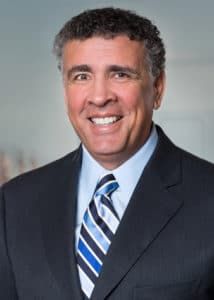Financial exploitation of the United States’ senior population is a major problem, victimizing an estimated 5 million elderly persons every year. News stories of scams in which con artists pose as grandchildren or IRS agents have become common.
However, a more insidious type of financial abuse also poses a risk to seniors and their retirement nest eggs: family member fraud. Even a person who is knowledgeable and cautious about fraud attempts from strangers can be blindsided by exploitation from people professing to love and care for them.
As the baby boomers retire in ever-greater numbers over the next decade, however, the problem will only continue to grow. The savings and investments that many of the boomers have accumulated represent a tempting target for everyone from family members and friends struggling with financial problems to deliberate predators.
In this article, we will help you understand elder family fraud: how it can happen, who is vulnerable to it, and why the effects can be severe and even life-threatening. We will also give you concrete and actionable steps that you can take to protect yourself and your loved ones from becoming victims.
Elder Financial Exploitation Affects Many, Will Increase
Our elders are already losing an astonishing amount of money to fraud and theft. It is estimated that as a group, seniors lose $36.4 billion a year to financial exploitation. This can severely impact their ability to live comfortably in retirement, or even have the basic necessities of life — approximately 945,000 seniors are skipping meals due to financial abuse.
It is difficult to determine the actual prevalence of this problem because these crimes are significantly underreported for a variety of reasons. An SEC report found that between 2.7% of 6.6% of the elder population is victimized in any given year, with around 5% of all seniors suffering some form of fraud in their later years.
This problem will continue to grow in the coming years. Many baby boomers have not yet retired and the youngest of that cohort may not do so for another decade or more. Moreover, the people most vulnerable to financial exploitation are those ages 80 and up, and even the oldest of the boomers have not yet reached that age. Certain trends, such as aging in place rather than moving to a retirement community, can also increase vulnerability because more people will have access to their homes as they need more assistance in later years.
Stephen M. Garcia has served as lead counsel in over 2,500 elder abuse cases in California with his firm Garcia, Artigliere & Medby. Garcia believes elder fraud by family members is a growing problem.
“Elder fraud by family members is disturbingly on the rise. As we face a time where it is more difficult than ever for people on a lower socioeconomic economic space to get a path to financial stability, unfortunately,y more family members look to take advantage of family members. The opportunity for rationalization of conduct is ripe in the family setting, “I took care of you all these years so you owe me” which surely fueled the issue. The old phrase “familiarity breeds contempt” is alive and rampant in the familial financial abuse discussion.”
It’s Often a Family Member
When most people, including seniors, consider the risks of elder financial exploitation, they think of situations where the perpetrators are strangers, such as fraudulent investment schemes or “sweetheart scams”. However, a large percentage of fraud originates much closer to home, with family members, friends, and caregivers. While typical scammers rely on hiding their real identity from the victim, family fraud exploits a close, trusting relationship.
How widespread is family fraud? Roughly 6 in 10 cases of elder financial abuse are committed by relatives, and 3 in 10 cases are traced to friends, neighbors, or home care aides. Because the abuse often happens over a long period of time, the amounts stolen tend to be higher than amounts in other forms of fraud against seniors.
“The cases I see often involve a son or daughter or grandchild who convinces the elder to hand over money again and again by using different stories or who offers to help with bill paying and then drains money from the elder’s bank account. These situations can be nightmares for the elders who lose both their money and trusted family relationships,” says Tim McNeil, a partner at The Elder Law Firm in Portland, Oregon.
Many of the perpetrators do not think of themselves as committing a crime or even doing anything wrong. They may see the older person’s savings as something they are entitled to because they are helping the person. For example, a grandchild who helps her grandmother manage online bill payments may transfer a “little extra” to her own bank account as compensation for her time.
Frequently, the relative is someone who will eventually inherit from the elder. They don’t see their actions as stealing from parents, but as getting an “advance” on what will come to them anyway. A son in a financial crunch may tell himself that he is “just borrowing” the money to get through a crisis, and will pay it back. These actions seem small and harmless, but they are fraud — and once someone gets away with it, they often come back for more, and begin taking larger amounts.
You’ve likely heard of a “victim of circumstance,” but you may never have heard of a “perpetrator by circumstance.” Yet, this is how you might describe the way a family fraud unfolds. Attorney Michael Edgel, founder of the Edgel Law Group in Oregon explained the phenomenon.
“I rarely see fraud in the form of a premeditated plan to steal from an elderly family member. It happens, but it’s not common. Far more common is a process of rationalization that starts small and grows over time. I see adult children, often those providing caregiving or financial management assistance for an incapacitated parent, who start feeling entitled to share the wealth,” says Edgel. He also notes that there is nothing wrong with receiving compensation for such services, as long as everyone is aware and it’s planned.
Of course, there’s nothing wrong with being compensated for such services, provided the compensation is planned, transparent to other family members, etc. But I often see a pattern where the child starts taking small liberties without telling anyone–a tank of gas here, some groceries there–and ends up spending tens of thousands of dollars of their parent’s money on themselves. Sometimes this is done using formal authority (e.g., a Power of Attorney), and other times it’s informal (e.g., using mom’s credit card here and there, or having her sign a pre-written check).
The common denominator I see is a process by which an adult child comes to feel entitled to a portion of their parent’s assets. In their mind, it’s not fraud at all because they’ve rationalized it.”
In other cases, the fraudster has ill intent from the start, deliberately trying to form a closer relationship with the older person in order to get access to their funds or to use the senior’s financial identity and credit to get loans, pay their own bills, or go on spending sprees.
Other common forms of financial exploitation can include:
Asking for a loan, knowing that the older person will forget it later
Stealing money, jewelry, or other items from the person’s home
Rewriting wills or power of attorney to gain financial control
Mortgaging the home without the owner’s knowledge or understanding
Using physical, verbal, and/or emotional abuse to maintain access to the victim’s finances
A Crime that can be Devastating, but Often Unreported
The effects of financial fraud against elders are wide-ranging, often far beyond the monetary loss. That loss alone can be life-changing, however, with some victims robbed of their entire savings and even finding themselves homeless.
Learning that someone you trusted has stolen from you brings strong negative emotions — anger, sadness, and fear — that take a physical and mental toll on even a strong and healthy person. For many seniors who are already struggling with health problems, their victimization can trigger a sudden and steep decline in their mental or physical state. In 2018, the Surgeon General of the United States declared elder abuse, including financial abuse, to be a serious public health issue.
Despite the seriousness of the problem, only 1 in every 44 cases of financial abuse are reported.
Seniors may have many reasons for not wanting to come forward:
They are ashamed to have been deceived.
They are unsure of their own judgment — they may suspect something is going on, but feel unable to prove it, especially if they have (or fear they have) cognitive impairment.
They are protective of the culprit, not wanting to “get them in trouble”.
They are dependent on the perpetrator and are afraid that the person may injure or abandon them.
They do not believe the police or other authorities can help them or recover their money.
Kimberly Swierenga, an elder law attorney in San Diego echoed these sentiments, based on the experiences with her clients.
“I think the betrayal an elder feels when it’s their own flesh and blood who has exploited them cuts deeper than when a non-family member exploits them because it kills the joy of leaving a legacy for someone who exists only because the elder does.”
“It may also be more painful to the elder when a family member who is familiar with the elder’s vulnerability exploits them because it causes the elder to doubt his/her own decision-making abilities and takes away the elder’s sense of security and independence. It’s a shameful and embarrassing experience for an exploited elder because the inherent trust has been betrayed.”
Swierenga’s clients often ask, “If you can’t trust your own flesh and blood, who can you trust?!”
Sadly, this activity often falls into a gray area where the victim is reluctant to press charges, and ultimately reducing exposure to the growing problem.
Who are the Victims?
A common assumption is that the elderly victims of financial fraud are isolated people with little social interaction. Their loved ones and friends have died, moved away, or are too busy with their own lives. And indeed, many seniors fit this description and are vulnerable to exploitation by scammers from telemarketers to the overly-friendly neighbor or home care aide.
Dr. Stacey Wood, Ph.D.
However, the opposite assumption — that people with a larger social network that includes regular interaction with family and friends are “safe” from fraud — is not always true. Dr. Stacey Wood’s research has shown that the quality of their interactions is more important than the size of the elder person’s network. If the person is having a lot of negative interactions with those around them, they can be just as vulnerable to exploitation.
How does this work in everyday life? Take the case of Mary, age 80. She had to give up driving last year and feels frustrated with her loss of independence. She knows her daughter is busy and already feels guilty asking her for rides, so she only asks when she really needs something. Nevertheless, her daughter often seems impatient and exasperated with the requests, and the time spent riding with her is tense and unpleasant for Mary.
Steve, a young man in his late 20s, lives next door and sometimes brings Mary’s mail up to the house. When Mary asks him if he can drive her to the grocery store, he agrees cheerfully. They chat in the car and Mary enjoys the time. She begins asking Steve for rides more often and opens up about the tensions with her daughter.
Of course, Steve could be a genuinely nice person who enjoys helping Mary and wouldn’t dream of stealing from her. But if he has more sinister intentions, he can take advantage of this opportunity to increase Mary’s trust and dependence on him, and encourage Mary’s more negative feelings about her daughter. In this way, even someone who has friends and family members watching out for them can become vulnerable.
Thus, to evaluate how much a person may be at risk, it’s important to look closely at who makes up their support network and how those relationships play out.
Preventing Family Fraud and Financial Abuse
Paul Black
With an understanding of how family fraud and financial abuse can happen, and the factors that can make an elder vulnerable, let’s take a look at some steps seniors can take to protect themselves, and ways that family members can watch out risks to parents and other older relatives.
Probate attorney Paul Black emphasizes that “families don’t have the luxury of seeing the world through rose-tinted lenses in which everyone behaves well all of the time. Any aging and vulnerable family member with any assets is a potential target for fraud and theft, and those who are closest to that person have the greatest opportunity, temptation, and (often) legal authority to access the vulnerable person’s assets.”
First, it’s important that seniors understand their own risks and take steps to educate and protect themselves from attempts to defraud them. Here are some important steps that they can take on their own, or with assistance from trustworthy relatives:
Make sure that all phone numbers (landline and cell phones) are entered on the Federal Do Not Call Registry. However, understand that many scammers disregard the do-not-call lists, and avoid answering calls from numbers you do not recognize.
Familiarize yourself with common popular scams, such as when callers pose as IRS agents or a grandchild to try to get money, so you recognize if someone is trying it on you.
If you are not already in the habit of carefully reviewing bill and bank statements, begin to do so, and ask questions about any unfamiliar withdrawals and charges. This is especially important for women who may have been accustomed to a husband who handled all the financial information.
If necessary, get a family member or friend you know you can trust to assist you in paying bills and handling finances, even if it’s just to have a second pair of eyes reviewing monthly statements and annual credit reports.
Keep personal papers, bank information, checkbook, and wallet in a secure location, particularly when people are visiting or coming to your home to do repairs, cleaning, or other assistance.
Recognize that your physical or mental condition may decline in future years, and set plans in place to protect your finances. Make arrangements with a trustworthy attorney, financial advisor, family member and/or friend so that your assets are secured.
Family members and friends should also be aware of the possibility of financial exploitation and be watchful for red flags that can indicate that an elder is being victimized or in danger of becoming a victim. These can include:
A new “friend” or a previously distant child or other relatives suddenly becoming close to the senior.
A friend or relative in the person’s life who has addiction issues, financial difficulties, or a history of criminal activity.
Having trouble paying bills or making purchases (food, clothing, medicines) that they could previously afford.
A relative or caregiver acting as “gatekeeper” toward other family members, and avoiding having visitors or direct phone contact with the elderly person.
Complaints of mislaid or missing items in the household, or suspicious transactions in bank or investment accounts that the senior cannot explain.
A decline in mental acuity that can make them more vulnerable to being taken advantage of.
A decline in physical health that can make the elder more dependent on others for transportation, home repairs or chores they previously did themselves, or personal care — all ways that someone with bad intentions can gain access to the person and their finances.
Changes in legal paperwork, including power of attorney, will, property deed or automobile title, or additional names on bank accounts.
The number one protection against financial exploitation is an honest discussion about finances and security issues before there is a problem. If an elder is comfortable asking a trusted person for help, and discussing questions and concerns, they will be more likely to speak up if they have a problem or suspect that they may have one. If you see any of the above warning signs that there may be a problem, try to express your concerns to the person. They may have their own worries and simply need an opening to talk about it.
However, be aware that they may be under the influence of someone else, in a confused mental state, or simply resistant to the idea that there could be a problem, which creates a difficult situation. Short of significant mental impairment, they are independent adults and have a right to handle their affairs as they see fit. Expressing your concerns often requires delicacy and tact.
If you are concerned that someone is financially abusing an older relative, friend, or even neighbor, there are steps you can take even if the possible victim does not believe there is a problem, or is afraid to admit it due to fear of or dependence on the abuser.
It can be difficult for local law enforcement to get involved, but you should make a report anyway with any information you have. Be as specific and factual as possible, and ask them to provide you with a case number. Continue to observe any suspicious or concerning activity and document it with times, dates, and specific descriptions. You can make additional reports and reference the previous case numbers.
Mina Sirkin
Seniors are often reluctant to press charges against family members or acquaintances who have taken money, seeing it as a simple mistake or feeling too ashamed to report it. The best way to avoid these delicate situations in the first place is to conduct proper planning. Mina Sirkin is a Board Certifed Specialist attorney in the areas of Estate Planning, Probate, and Trust Law, and adds that “when handling money of the elders, to protect someone from bank fraud of an elder’s funds, one can give specific instructions in a power of attorney, and trust, and require a bond. A bond is an indemnity contract that can protect the funds.”
Every state has agencies that provide information and support for seniors and those caring for elders, as well as adult protective services if necessary. Many cities and counties have additional resources as well. You can make an anonymous report if you are concerned that someone is being abused or neglected. The National Council on Elder Abuse has a guide to state resources where you can find out what is available in your state, and how to contact them.
If your elderly parent or other close relative has been victimized by family fraud or financial abuse, it is important to take steps to protect them from further exploitation, secure their assets, and perhaps recover stolen money or property through civil court action. You should consult an attorney who specializes in elder law.
Gian Ducic-Montoya
Gian Ducic-Montoya is a partner and Director of Litigation Operations at Albertson & Davidson, LLP. Ducic-Montoya graciously shared some excellent advice on keeping family financial abusers away from loved ones.
“Act early, and act often. Elder abusers are resilient and persistent, they do not stop easily. Have conversations with the elder about their finances. Ask about any major changes to their financial situation, ask who controls their finances, and ask who has access to their accounts. If fraud or abuse is suspected, take action quickly and follow up repeatedly. Seek the help of an attorney, or report suspicions to adult protective services.”
Elder financial fraud has been a hidden and all-too-prevalent occurrence in recent decades, but awareness is increasing and more resources are being made available to fight these crimes. In 2018, Congress passed the Senior Safe Act, and it was signed into law by President Trump, which provides guidance and resources for financial institutions to train employees to recognize and report signs of financial exploitation of vulnerable seniors. States are also working to pass laws and create more protections against these crimes, which rob our elders not just of their financial assets, but the safe and secure retirement they have earned through their lifetime of work and savings.






TABLE OF CONTENTS
SECTION I – Elder Financial Exploitation Affects Many, Will Increase
SECTION II – It’s Often a Family Member
SECTION III – A Crime that can be Devastating, but Often Unreported
SECTION IV – Who are the Victims?
SECTION V – Preventing Family Fraud and Financial Abuse




